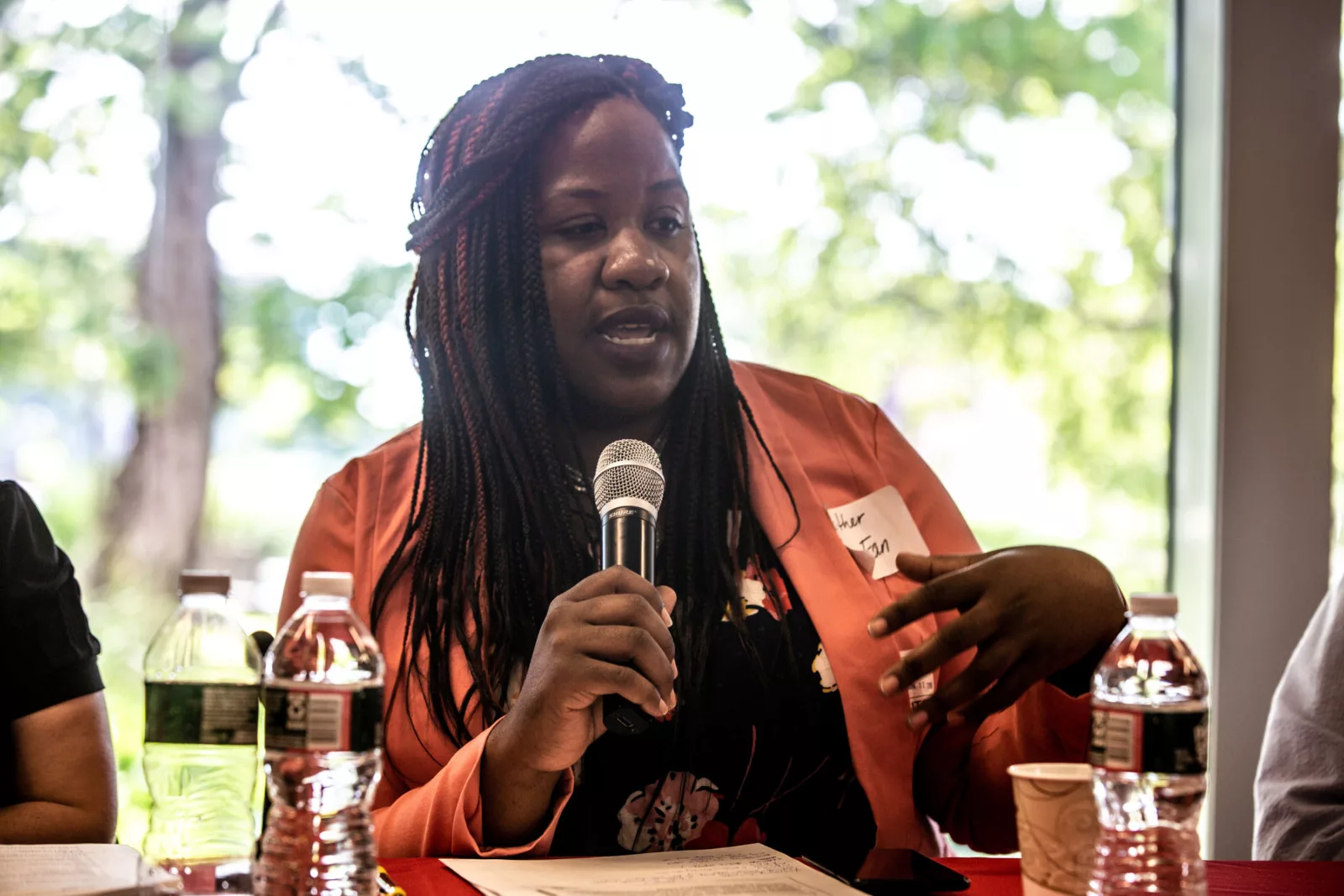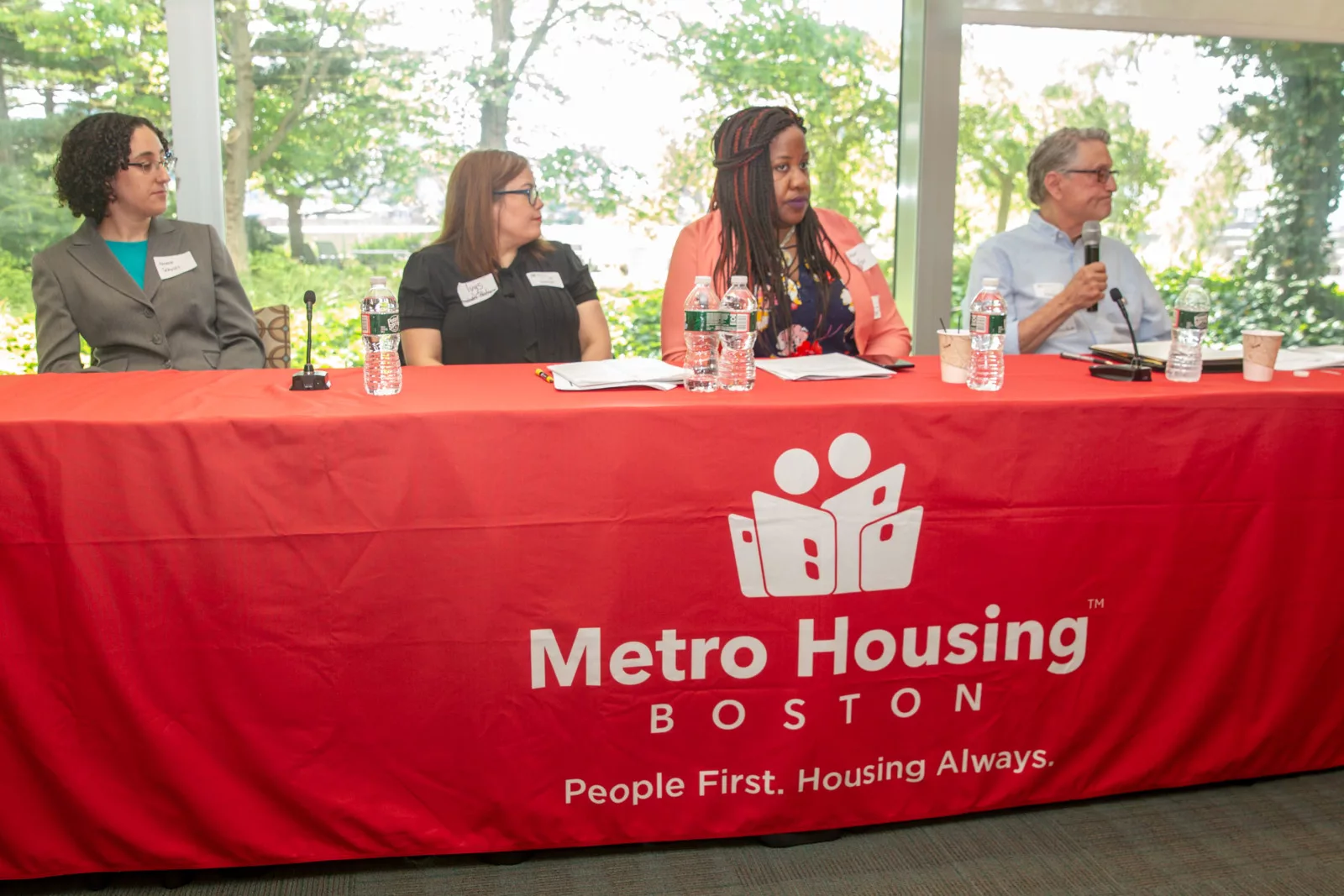
By Esther Fan Fan
Last month, I was on a panel for Metro Housing’s Housing Matters Forum on colocations and community-level housing services. It was based on a research paper that explored how integrated health and human services – including housing – results in positive outcomes for both the participants and the host organizations.
Metro Housing has developed a service delivery system that is characterized by partnering with other locally-based nonprofits to service participants in their home communities, and in surroundings that they may be more comfortable in.
The research paper, which provided an overview of the social work structure of the “integrated service” model, which is how colocations are sometimes referred to, was presented by Neena Schultz. In her report, titled “Integrating and Expanding Access to Housing Services in Greater Boston”, she outlined the different types of relationships that Metro Housing has developed at the 15 sites with which we work. The short story is that our model is adaptive and flexible. The needs for each community and each partner vary, so Metro Housing therefore needs to be responsive to that. While this is more staff intensive, it will also yield the best outcomes for participants.
I have seen the impact of these integrated services in my work as Colocation Case Manager at Boston Medical Center. Here are a few of my thoughts.
- First, stable housing will lead to improved health outcomes. Not having a consistent place to sleep or having to worry about where you will to sleep for the night is detrimental to one’s health. By helping provide stable housing, whether it is helping a family relocate or helping a family that fell behind in rent, families are more able to focus on other aspects of stabilizing their lives for their families. By working in conjunction with families, their social workers, and occasionally legal services, it allows us to get a better picture of the family and in turn achieve a positive outcome for the families we serve.
- Second, identifying and tracking appropriate outcomes is tricky. It is sometime hard to justify a good outcome that doesn’t end with a family receiving some sort of funding. Many times the work that my team and I are doing is case management that involves reunification with children in DCF, and providing additional resources for food. We very rarely strictly work on housing issues with families that meet with colocation staff. How do you quantify that in numbers to be able to really show the hard, dedicated, level of work those participants? It is something that we continue to work on.
- Finally, affordable housing in the Boston area is scarce. That is a well-known fact. And yet there are things that Metro Housing has been able to provide to families with the lowest incomes that do not have a housing voucher, such as determining eligibility for other programs, help families apply for housing lotteries, and other strategies for stabilizing their current housing. Often the primary job of colocation case managers is to do our best to make lemonade out of life’s lemons.

Also on the panel were Mark Alston-Follansbee and Ivys Fernandez-Pastrana. Their perspectives on the colocation model were also interesting. For example, Mark, the former executive director at Somerville Homeless Coalition, mentioned that Metro’s model is not he first of its kind nor a new idea. This is true, and yet we believe how we sketched out the approach to colocations in the three tiers of intensity will fine-tune our and others’ approach to current and future partnerships.
Additionally, with colocations Metro Housing staff are able to bring services especially around housing and additional resources to families to their door step in some cases. Similar to how we work with Ivys and her colleagues at Boston Medical Center, having monthly or bi-monthly meetings allows us to customize the colocation model to fit the needs of the population that site is seeing.
Overall, I appreciate the insights this research provides Metro Housing, and I look forward to continue to work in partnership with each site as well as use best practice methods to best serve our families.[/vc_column_text][/vc_column][/vc_row]